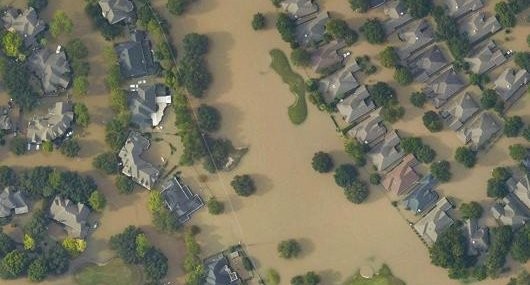The devastating hurricanes that struck Texas, Florida and Puerto Rico challenged our country in ways we have not seen since Katrina made landfall more than 12 years ago. The impacted areas are still rebuilding, and we’re still taking stock of the damage.
Florida and Texas, especially, are Humana country, and the latter is where I went to school years ago. More than 13,000 employees and one million customers were in the path of Hurricanes Harvey and Irma. So, a few weeks ago, I went to Miami to understand firsthand the impact that these storms had on our employees, our customers and our operations.
I was proud of how our company responded to the hurricanes, from suspending prior authorizations and referrals to helping impacted members find out-of-network doctors and ensuring them network pricing. Several employees who are nurses volunteered for the state of Florida, which was experiencing a nursing shortage.
During my visit, I drove around with one of our local physician leaders, stopping by a number of Humana sites and the Red Cross. Some of my observations from the hurricanes:
· Connectivity is everything – The American Red Cross is a great organization that’s served the needs of tens of millions of Americans. We drove to a shelter to talk with people and to see how they’re coping.
While the shelter reflected a wide variety of people from all walks of life, there was one thing in common: everyone was on their phone or tablet. I thought about the connectivity issues experienced during Hurricane Katrina, when smart phones did not exist, and realized that the connectivity apparent at just this one shelter showed how far we’ve come.
· Food and water, or a charger? – Losing electricity after a hurricane always brings significant challenges. But the lack of mobile or Wi-Fi service appeared to be an even larger problem for some people, a testament to how dependent we are on our mobile devices.
One Miami employee spoke about how, in the past after a hurricane hit, neighbors would look for generators to keep refrigerators running. Today, it was more about charging our devices.
· Think differently – Don’t let preconceived notions cloud your judgment. Many people do not see older Americans as avid users of technology, yet many members of this population have embraced their devices. For example, one Red Cross worker shared a story about her 93-year-old dad, who communicated with her via texting because he felt the phone was less dependable.
This story shows how society has changed and how hundreds of millions of Americans, regardless of age, depend on their mobile devices to stay connected, even during a time when some had lost their homes.
All these observations have a common element: collaboration. Red Cross workers and volunteers were collaborating to solve problems. Neighbors were collaborating to share essentials. The Red Cross worker and her father were collaborating to ensure he was safe and well.
But even with that progress, we’re not done yet. Humana has approximately 800 employees in Puerto Rico, serving more than 120,000 members, and it will be a long time before the island has a sense of normalcy.
The power of collaboration I witnessed during the hurricane recovery efforts is inspiring. I saw Americans of all ages, genders, races and backgrounds coming together to put the needs of others first.
The collaboration displayed after these storms shows that we can accomplish anything when we’re working together for a purpose bigger than ourselves.

